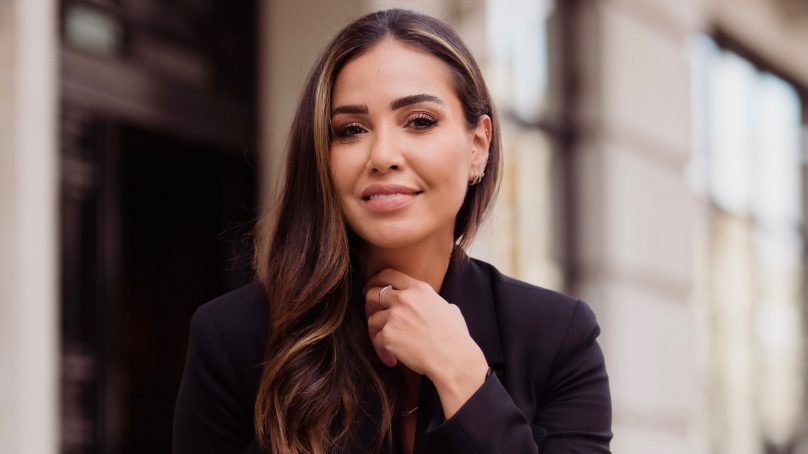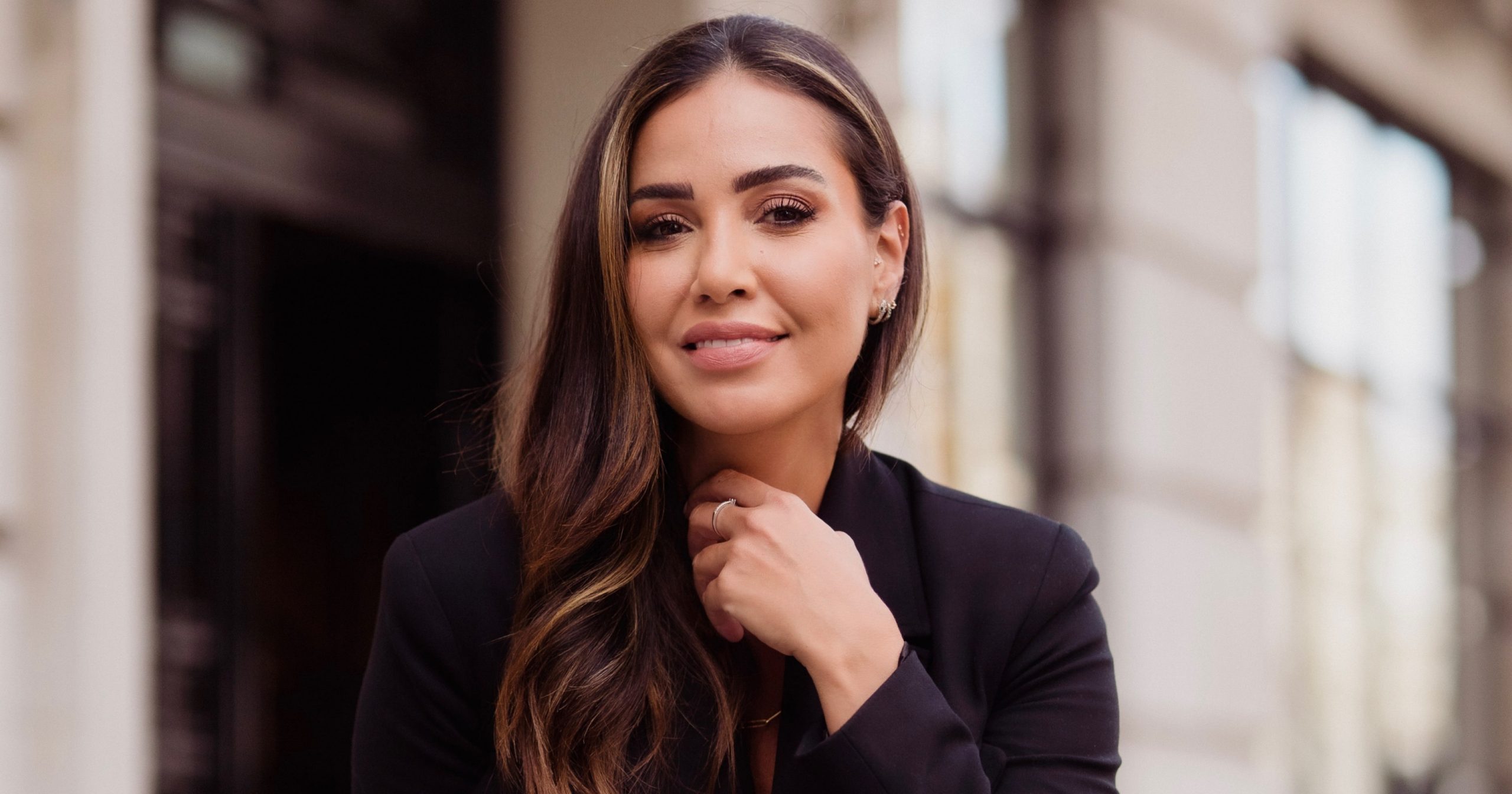Chef Hala Ayash, TV and media personality, believes that life — like food — is best enjoyed with soul and laughter. In this interview, she shares her vision for elevating Middle Eastern cuisine, her approach to media and authenticity and commitment to sustainability.
As a prominent figure in the culinary world, what is your vision for elevating Middle Eastern cuisine on the global stage?
Middle Eastern food is packed with amazing flavors and stories; however, it remains somewhat of a secret in fine dining. Therefore, I want to give Levantine dishes a modern update, bringing them to high-end restaurants while maintaining their essence. Through media, collaborations and new recipes, I am working to show that Middle Eastern cuisine offers more than kebabs and hummus. Furthermore, by combining tradition with modern techniques, my goal is for Middle Eastern cuisine to gain the recognition it truly deserves. Ultimately, I aim for Middle Eastern dishes to appear on Michelin-starred menus and be enjoyed by foodies worldwide.
What defines the Chef Hala Ayash brand and how do you differentiate it from other chefs in the Middle Eastern culinary space?
My brand focuses on blending tradition with innovation, celebrating Middle Eastern heritage while offering a fresh approach. I aim to make things accessible for everyone without compromising the special touch, bridging home cooking and professional techniques. With experience in media, brand collaborations and consulting, I can bring the stories behind the food to life effectively. Furthermore, I prioritize fresh, high-quality ingredients, incorporating unique Mediterranean twists. Ultimately, it’s not only about the food; it’s about creating experiences that connect people to culture through exceptional flavors.
You have a strong presence on cooking shows and social media. How do you strategically use these platforms to strengthen your brand?
Cooking shows and social media aren’t just platforms for posting content; instead, they are powerful tools for telling engaging stories. I use these platforms to teach, inspire and excite people about Middle Eastern food in relatable and accessible ways. My strategy is simple: create great content, be authentic and engage with my followers through regular conversations and interactions.
Cooking shows and social media have become key platforms for chefs. How do you ensure authenticity while engaging with a global audience?
For me, being authentic means staying true to my beliefs by sharing my journey, real kitchen moments, and honest opinions. Consequently, I avoid using scripts, instead focusing on telling stories naturally, showcasing what really happens behind the scenes with my audience. Furthermore, I aim to share more than just recipes; I want to convey the emotions, traditions and memories that accompany each dish. Whether on TV or Instagram, I ensure everything I create is something I genuinely love, so people connect with me. Thus, being real, unfiltered and passionate is how I build trust, engage my audience and create meaningful connections through food. Moreover, I share behind-the-scenes glimpses, break down recipes and collaborate with cool brands, offering people much more than just cooking. By using these platforms, I stay connected with my fans while also expanding my reach in the global food scene.
What steps do you think chefs and restaurateurs should take to reduce food waste and promote ethical sourcing?
Being sustainable starts with paying attention and truly caring about our resources, which is why chefs must take responsibility. As chefs, we need to respect our ingredients by using everything we can, minimizing waste with smart menu planning. Furthermore, finding creative ways to use leftovers reduces food waste, helping us make the most of what we have. Sourcing ingredients ethically is equally important; choosing local, organic and seasonal produce not only enhances quality but also supports local communities. Additionally, we need to teach people about portion sizes, promoting responsible eating habits to encourage sustainability and reduce waste. I believe in working with farms, cutting down on plastic use in the kitchen and utilizing zero-waste recipes. Ultimately, small changes add up, creating a big difference for a more sustainable food world and a healthier planet.

















